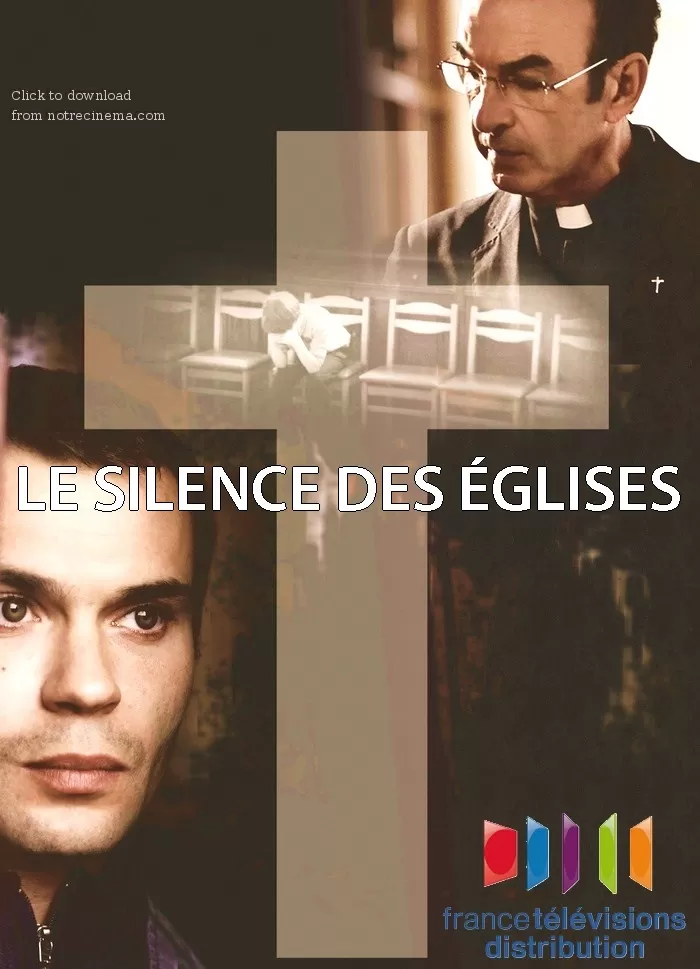Sexual abuse within the Catholic Church has been a dark shadow haunting countless stories and screens worldwide, and “Le Silence des églises” plunges headfirst into this unsettling abyss. I’ve seen my share of films tackling this painful topic—some full-length dramas, others raw documentaries—but each time, a knot tightens in my throat. It’s that gut-wrenching mix of betrayal and helplessness that lingers long after the credits roll. Even though I’ve wrestled with whether to highlight such brutal realities on my blog, this film demanded that I do so.
The story spins around Gabriel, a man haunted by the ghosts of his childhood, stirred anew when he hears the echoing innocence of a Catholic school choir’s famous CD. Suddenly, memories flood back—the cold corridors, the seemingly kind smile of Father Vincey, and the sinister undercurrents beneath the sacred walls. Picture a young boy enraptured by praise and trust, only to be ensnared by the vampire-like manipulation of a priest who cloaks his cruelty in God’s name. What chills me most is how systematically the abuser works, cleverly wrapping twisted control with threats of divine wrath, shredding innocence while shrouded by religious devotion.

Even more heartbreaking is the blindfold worn by parents, oblivious or unwilling to see the nightmare unfurling beneath their feet. How many times have I heard whispers of such silence, how often has faith become the cruel barricade against truth? And then, fast-forward fifteen years—Gabriel, battle-weary and brimming with rage, arms himself with a gun, torn between vengeance and justice. When he finally confronts Vincey, the flood of memories hits like a tidal wave, raw and unforgiving. The church stands behind a cold wall of indifference, failing time and again to protect the innocent. Eventually, Gabriel’s courage pushes the case into a courtroom drama that, while lacking some flesh on its legal bones, delivers a hard-won sentence of fifteen years for the predator priest.
This film doesn’t flinch from showing every sordid detail—the shame, the degradation, the suffocating silence imposed by an institution that should have been sanctuary. Watching it, I felt a mix of anger and sorrow so profound it almost felt like the walls around me were closing in. Father Vincey is portrayed chillingly; the actor’s unsettling performance turns him into the embodiment of evil’s quiet smile. I have to tip my hat to that difficult role—making the monstrous human is no easy feat. Yet the pacing drags at times, and curiously, the courtroom’s final reckoning unfolds too quickly—I longed for a deeper dive into how the entire church hierarchy was held accountable. Why this rushed finish? The silence here is deafening.
Still, “Le Silence des églises” is an urgent, necessary film—a reminder, a warning, and a call to protect those we love from shadows lurking behind closed doors. If you ask me, films like this don’t just tell stories; they tug at the soul and demand we break the silence that has allowed such horrors to fester for far too long. It left me restless, thoughtful, and more determined than ever to listen and speak up. After all, how many more voices must be muffled before the world truly wakes up?


The focus on Gabriel’s trauma triggered by the choir CD hit hard—it’s unsettling how Father Vincey weaponized faith to mask abuse. I thought the film’s blunt portrayal of systemic manipulation under religious cover reveals layers of complicity.